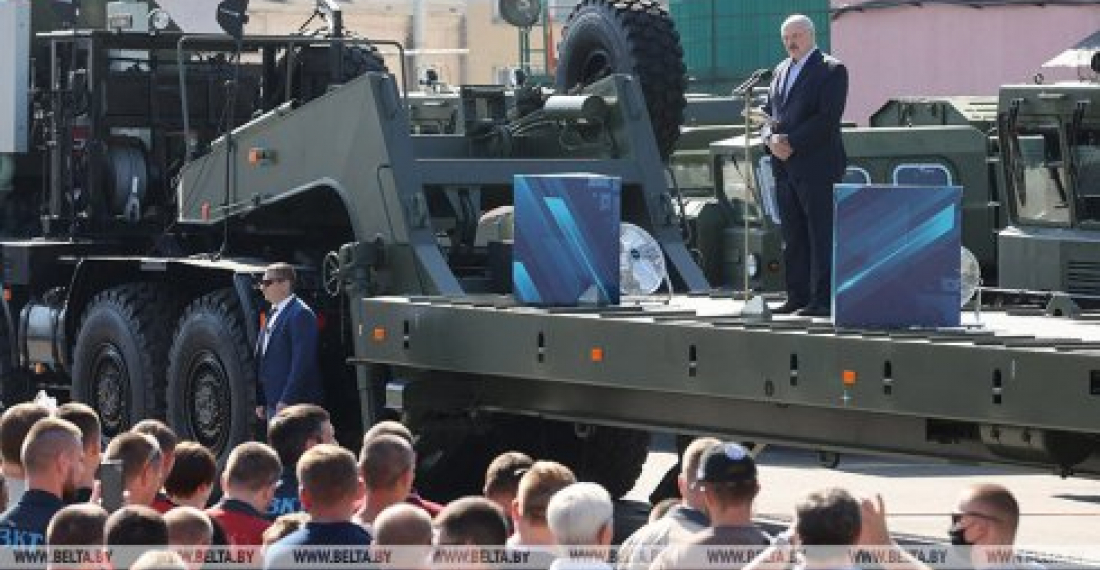Belarus leader, Alexander Lukashenko is struggling for his political life. The fallout from the presidential elections held a few days ago, which he claims to have won with a landslide, but which opponents claim was widely falsified, continues.
First there were the protests. Then, the police brutality against thousands of peaceful protestors. That in turn brought tens of thoudsands of portestors on to the streets.
Lukashenko has tried to show that he still has popular support. But the rally organised by his supporters on Sunday (16 August) was dwarfed by that of the protestors.
Yesterday, Lukashenko travelled by helicopter to one of the large factories, the Minsk Wheeled Tractor Factory (MZKT) which in the past provided him with some of his most loyal political support. But instead of being cherered, he was jeered, with workers shouting for him to leave. Lukashenko was clearly shocked and flustered.
Many are comparing this moment to the time when the Romanian dictator Nicolai Ceucescu was overthrown in 1989. He also called workers from the state factories to the centre of Bucharest, expecting to be cheered, but instead to his shock and horror he was booed. It marked the end of Ceucescu, because it showed that his core support base had collapsed. Something similar appears to be happening in Minsk.
In the meantime international efforts to find some resolution to the crisis in Belarus continues. The OSCE - the Organisation for Security and Co-operation in Europe - is trying to intiate a mediation mission. The current Albanian Chairmanship and the incoming (2021) Swedish Chairmanship of the organisation are working together, and have offered to send a mission led by their foreign ministers to Minsk.
A statement issued on Monday (17 August) said,
"We reiterate our concerns about the conduct of the Presidential election on 9 August 2020, which could not be observed by the OSCE's Office for Democratic Institutions and Human Rights, and the disproportionate use of force against peaceful protesters, widespread detentions and alleged torture and mistreatment by the security forces.
An open and constructive dialogue is needed to find a way forward in Belarus.
The OSCE stands ready to support this and to engage with all stakeholders.
A formal offer has therefore been submitted to the government of Belarus for a visit by the OSCE Chairperson-in-Office, Prime Minister and Minister for Europe and Foreign Affairs of Albania, Edi Rama, and the incoming OSCE Chairperson-in-Office, Minister of Foreign Affairs of Sweden, Ann Linde - to meet with the government and representatives of the opposition.
The OSCE Chairmanship reiterates the urgent need for full compliance with OSCE principles and commitments, including the promotion and protection of fundamental freedoms and human rights, and respect for sovereignty and territorial integrity."
The leaders of the 27 member states of the European Union will discuss Belarus on Wednesday at a special meeting convened by the EU Council president Charles Michel.
In the meantime there are reports that German Chancellor, Angela Merkel will discuss Belarus on Tuesday (18 August) during a planned phone conversation with the Russian president Vladimir Putin.
source: commonspace.eu with agencies
photo: Belarus leader Alexander Lukashenko speaking at the MZKT tractor factory in Minsk on 17 August 2020 (picture courtesy of the Belta News Agency, Minsk).






